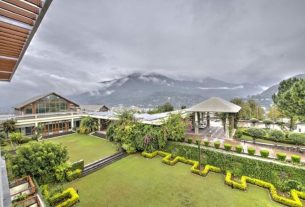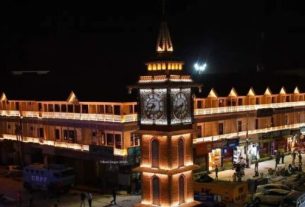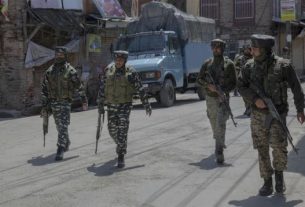Azad Jammu & Kashmir (AJK), a region known for its breathtaking natural beauty, is currently facing significant social and economic challenges. The citizens of AJK have expressed growing frustration over the lack of fundamental human rights, job opportunities, and the absence of legal and constitutional freedoms. These issues have sparked protests across the region, led by the Joint Awami Action Committee AJK, as people demand urgent solutions to their grievances.
Economic Hardships and Lack of Job Opportunities
One of the major issues in AJK is the high rate of unemployment. Many young people graduate from schools, colleges, and universities with dreams of building successful careers, but they often find themselves without jobs. This lack of employment has left countless families struggling to meet their basic needs. While AJK has the potential for growth in sectors such as tourism, agriculture, and hydropower, these industries remain underdeveloped, providing few opportunities for meaningful employment.
The government’s failure to create job opportunities has forced many young people to leave the region in search of work, leading to a “brain drain.” This migration not only affects individuals and families but also weakens the overall development of the region.
Deprivation of Fundamental Human Rights
Citizens of AJK face severe limitations on their fundamental human rights. These include restrictions on freedom of expression, assembly, and the press. People are often afraid to speak openly about the issues they face due to the fear of retaliation. Protests and demonstrations are sometimes met with harsh crackdowns, further limiting the people’s ability to voice their concerns.
In addition to these restrictions, there are also allegations of discrimination and inequality in the distribution of resources and opportunities. Many residents feel that the region’s development is being neglected by both local and federal authorities, leaving them in a state of perpetual deprivation. Access to quality education, healthcare, and infrastructure is limited, particularly in rural areas.
Lack of Legal and Constitutional Freedoms
AJK is governed under a unique framework that limits its autonomy. Although the region has its own elected government, many key decisions are made by authorities outside AJK. This has led to a sense of frustration and helplessness among the people, who feel they have little say in how their region is managed.
Legal and constitutional freedoms in AJK are also constrained by outdated laws and policies that fail to address the modern needs of the population. The lack of judicial independence means that many people cannot access fair and timely justice, further deepening their grievances.
Impact of Recent Protests
In recent years, protests across AJK have become more frequent as people demand their rights. The Joint Awami Action Committee AJK, a coalition of various civil society groups and activists, has played a key role in organizing these demonstrations. Their demands include job creation, an end to corruption, and greater legal and constitutional freedoms for the region.
Despite these protests, little progress has been made to address the people’s concerns. Instead, authorities have often responded with force, leading to clashes between protesters and law enforcement. This has created an atmosphere of tension and distrust, further alienating the citizens.
The Call for Action
The current situation in AJK requires urgent attention from both local and federal authorities. To address the unemployment crisis, the government must invest in job creation programs, promote small businesses, and develop key industries such as tourism and hydropower. Education and vocational training programs can also help equip young people with the skills they need to succeed in the job market.
In addition, steps must be taken to protect fundamental human rights. This includes ensuring freedom of speech, assembly, and the press, as well as addressing inequality in resource distribution. Legal reforms are also essential to provide the people of AJK with greater autonomy and access to justice.
Finally, it is crucial for the government to engage in open dialogue with the people of AJK. Listening to their concerns and involving them in decision-making processes can help build trust and create a more inclusive and prosperous future for the region.
Conclusion
The people of Azad Jammu & Kashmir have endured decades of neglect and deprivation, but their voices are now growing louder. The protests organized by the Joint Awami Action Committee AJK are a clear indication that the status quo is no longer acceptable. By addressing the root causes of their grievances, the government can help transform AJK into a region where everyone has the opportunity to live with dignity, freedom, and hope for a better future.





